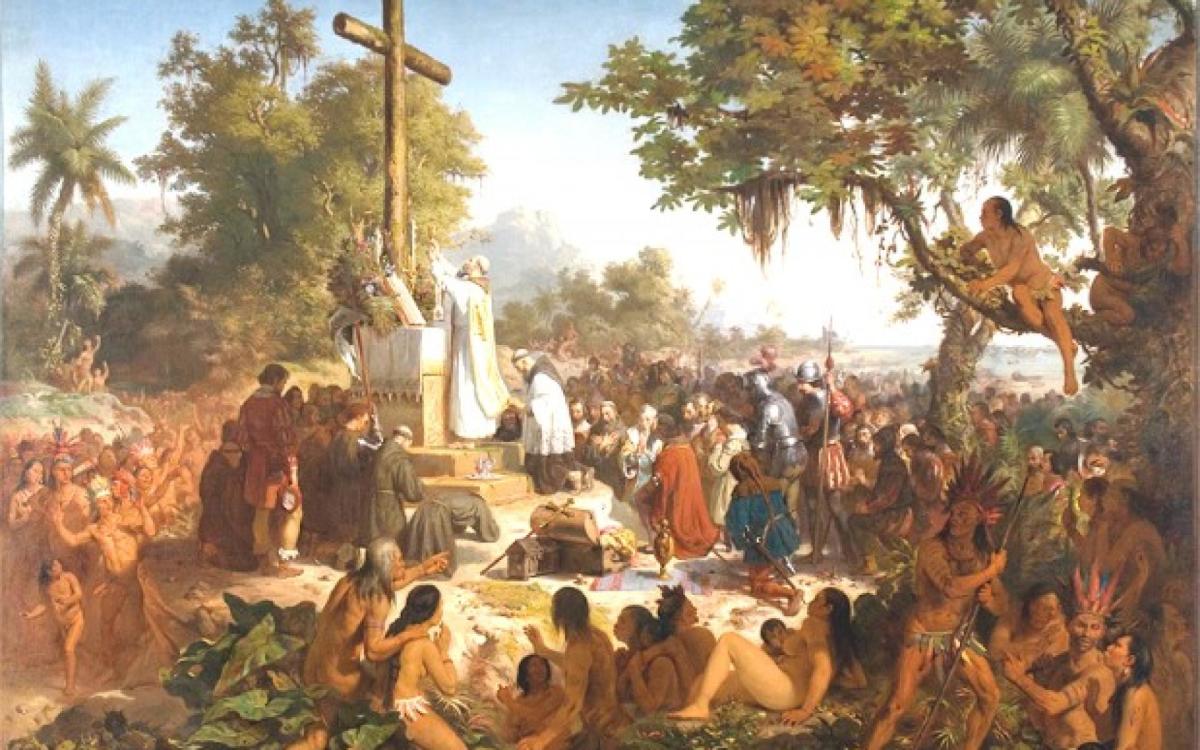Before the arrival of the Europeans who colonized Brazil, the more than a thousand indigenous tribes who lived here already worshiped a series of divinities and myths about the creation of life. All of them are always connected to nature, the environment in which these peoples originally lived. Among Tupis, Guarani considered the most important, Yanomami, Macaws, and many less populous people, a true mythological legacy was created. Currently, the more than 450 thousand Indians, who manage to survive keeping their roots amid overwhelming civilization, are fighting hard to keep this Brazilian culture alive. Check out the main myths and gods from this belief.
Tupis-Guarani Gods
Tupã
The “Spirit of Thunder,” that great creator of the heavens, the Earth, and the seas, is also the creator of the animal and plant worlds. Tupã is known for spreading its knowledge. He presented the shamans with the knowledge of medicinal plants, capable of remedying warriors and all members of the tribe and granting magical healing rituals. And, to men, he taught the means of survival such as hunting, agriculture, and crafts.
Jaci
Daughter of Tupã, Jaci is the sister and wife of Guaraci, the god of the Sun. This is the goddess of the Moon, the guardian of the night. Jaci is responsible for the protection of lovers and reproduction. It is capable of awakening the longing in the hearts of warriors and hunters so that they rush home and, thus, the meeting with their wives.
Guaraci
Called “Deus do Sol,” Guaraci is the son of Tupã and brother and husband of Jaci, the goddess of the Moon. He is the guardian of creatures during the day. He helped his father in the creation of all living beings. The wives, who wait anxiously and apprehensively for the return of their hunters and warriors, ask for protection for this god. In the transition from night to day, Jaci and Guarani meet briefly.
Ceuci
It is the protector of crops and indigenous homes. European colonists compared Ceuci to the Virgin Mary due to a great miracle. Her son, Jurupari, spirit guide and guardian, was born from the fruit of the cucura-purumã tree, which represents good and evil in Tupi mythology.
Anhangá
Anhangá is the god of the infernal regions, so he is the enemy of Tupã, the great creator. This wandering spirit is capable of taking the shape of several animals of the jungle. It is considered the protector of animals and hunters, despite being associated with evil. It is believed to mean a bad omen or a sign of disgrace when it appears to someone.
Sumé
Considered the vigilante of the gods, Sumé is responsible for maintaining the laws and rules. In addition, this god has vast knowledge in cooking cassava and its various possibilities. Due to the poor behavior of the indigenous people, Sumé left. He walked over the Atlantic Ocean, promising to return to discipline the Indians.
Deities of other tribes
Akuanduba
From a less populous tribe, that of the Macaw Indians, this god is strict. Located in the Xingu basin, in Pará, he played his flute to bring order to the world. As punishment for bad behavior and disobedience, human beings were thrown into the water. Few survived this rebuke, and those who remained had to learn again how to continue living.
Yorixiriamori
Coming from the mythology of the Yanomami, he is the character of the singing tree. The god, with his beautiful singing, enchanted women and aroused anger and envy in men. The rebels got together and tried to kill him. Yorixiriamori fled in the form of a bird, and the singing tree left Earth.
Yebá Beló
The Yebá Beló myth originated from the desanas Indian tribe, located at the top of the Rio Negro, Brazil’s border with Colombia. The goddess inhabited an illuminated abode composed of quartz. He was responsible for creating the universe, and human beings emerged from the coca leaf, called ipadu, which she usually chewed.
Wanadi
The belief of the Yecuan tribe, coming from the Brazil-Venezuela border, says that there were three beings responsible for creating the world. The third came because of an error made by the first two: the deformed creature, which represents the evils of life, such as hunger, disease, and death. Thus, the responsibility of the third party was to complete the creation successfully.
Aramnani
There is also the myth of the arauetés tribe, from the middle Xingu, in Pará, regarding the beginning and the end of everything. Legend has it that a husband outraged by his wife’s insult created the world. The god sang and touched his rattle, creating the Earth with three more levels: two celestial and one underground, with a river and two islands. Those who rise to the heavenly level become gods. There is also an even higher layer, the Red Sky, where other men also rise. The soil breaks, leading men to fall into the underground river. A giant piranha and alligator eat these. The fugitives start to live on the islands and, when they die, their soul is divided in two. One remains for a time wandering the Earth, and the other is in the first celestial layer in contact with the gods.
Next: The Ruling Gods, Goddesses and Planet Of Each Zodiac Sign


